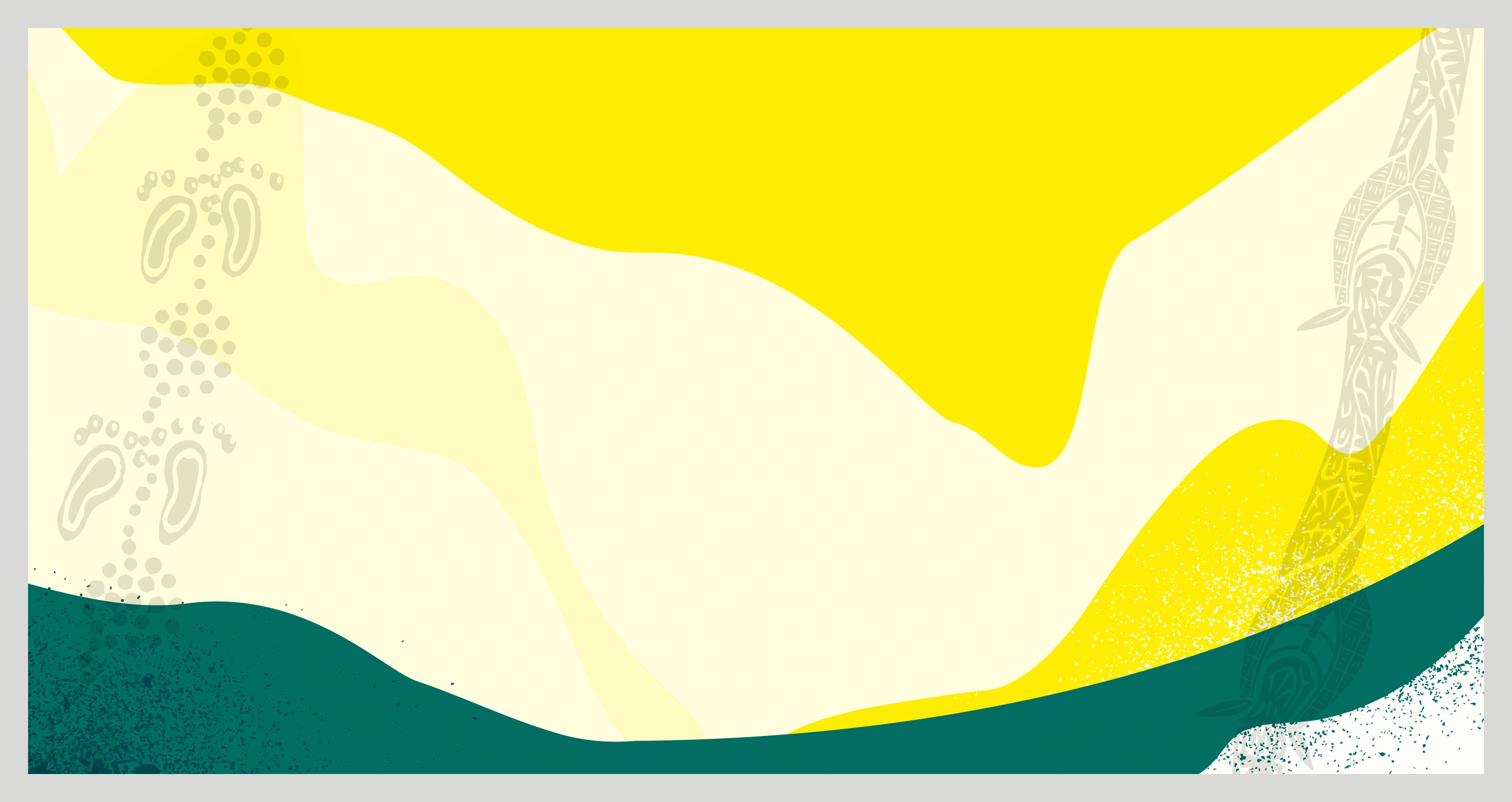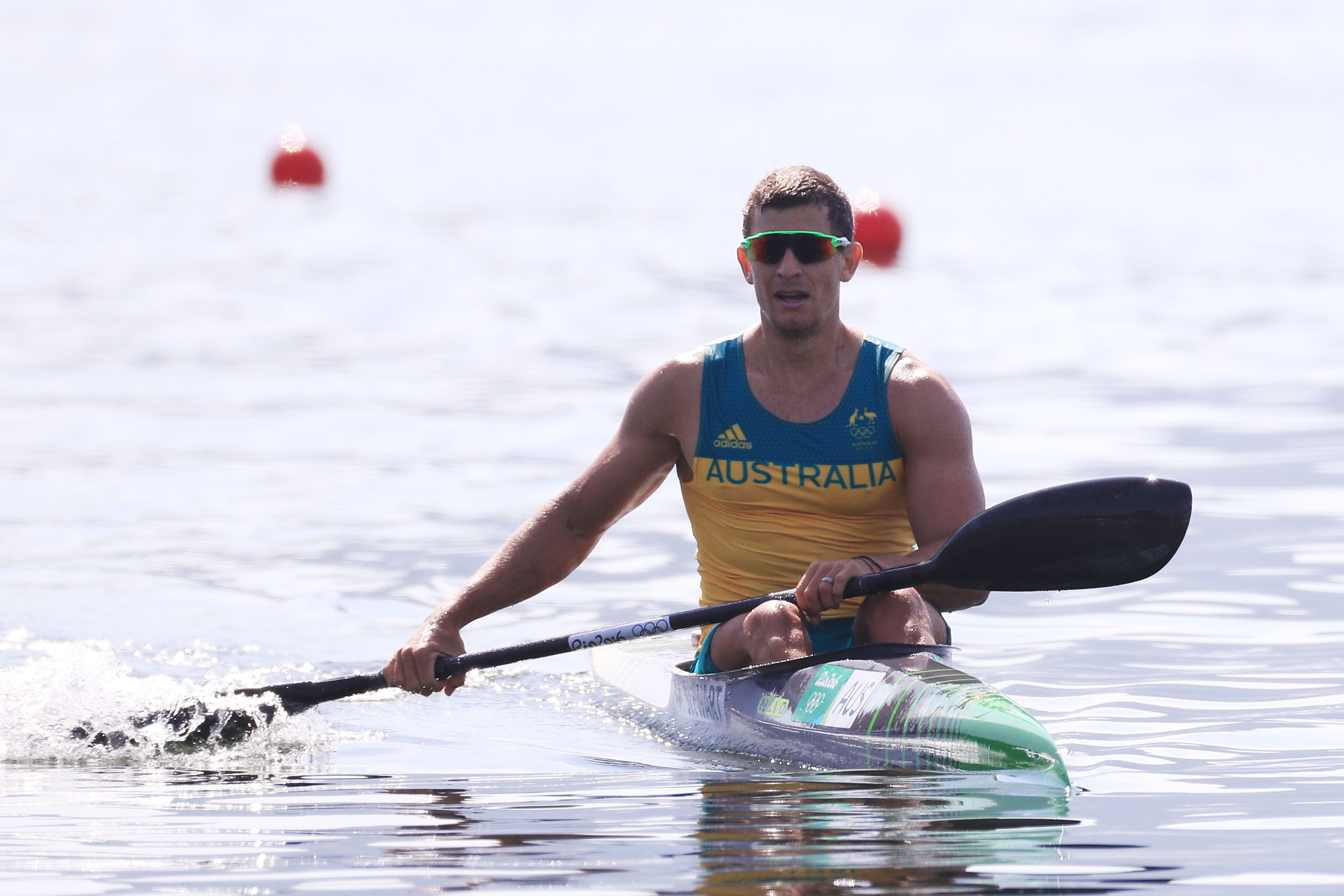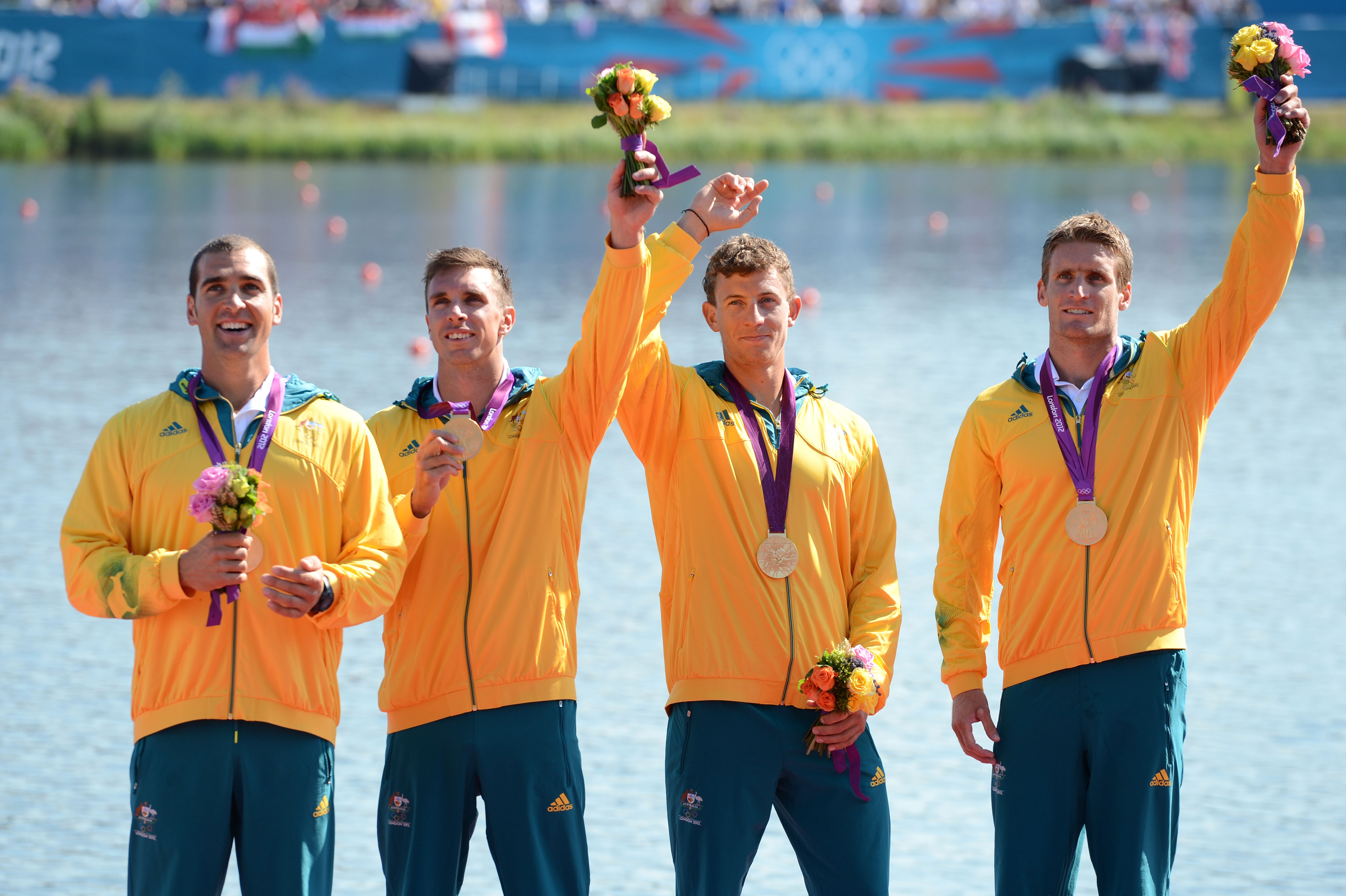
HAVE A GO AT OLYMPIC SPORTS
HAVE A GO AT OLYMPIC SPORTS


Age
38
Place of Birth
Durban, South Africa
Olympic History
London 2012
Rio 2016
Tokyo 2020
Career Events
Canoe Sprint Men's K-1 200m
Canoe Sprint Men's Kayak Four (MK4) 500m
Canoe Sprint Men's Kayak Single (MK1) 1000m
Mens K-4 - 1000m
Sport: Canoe – Sprint
Olympic History: London 2012 (Gold); Rio 2016; Tokyo 2020
Highlights: Winning Olympic Gold in the K4 1000 at the London 2012 Olympic Games
Coach: Jake Michael
Year Born: 1986
Country Born: South Africa
Murray Stewart immigrated to Australia with his family in early 2000. Growing up in South Africa, he excelled in athletics, swimming and water polo but switched to the surf ski once settled in Australia. His father had been a champion sprint, slalom and surf paddler so the transition was a natural fit.
Stewart was a talented junior and bagged national medals all while completing his high school exams.
He started flat water kayaking in 2005 and a year later was selected to an Australian under 23 team and won the K1 1000 metres at an event in Poland.
A young Murray had one eye on the Beijing 2008 Olympics, but a ruptured appendix followed by a spinal fracture in late 2007 disrupted his preparations and he was forced to put his Olympic dream on hold for four more years.
Murray won the single ski events at the 2008 Lifesaving World Championships and 2009 Australian Surf Life Saving Championships and began to build to the London 2012 Olympic Games.
At the start of 2012, Stewart stormed into the public eye with a huge run of top performances at the Olympic selection events. He came first in the K1, K2 and K4 1000m events at the Oceania Championships, before backing up at the Australian Championships to win the same three events.
Lining up for three events at the London 2012 Games, undoubtedly Stewart’s highlight of his debut Olympic campaign was taking out gold in the K4 1000 alongside teammates Jacob Clear, David Smith and Tate Smith. In what was a closely fought tussle, the Australians held a 0.09 second lead at the halfway mark of the race before going on to claim victory by 0.61 seconds ahead of Hungary at the Eton Dorney course.
Stewart finished 8th in the B Final of the K1 1000 and 6th in his heat of the K1 200 – missing the semi-finals.
Four years later at Rio 2016, Stewart lined up at his second Olympics. Despite an injury-plagued preparation, he was in the mix for a medal in the K1 1000.
In the final he paced himself out of the start with Portugal’s Fernando Pimenta taking the early lead and Stewart in fourth. As the paddlers approached the halfway mark, Stewart made his move and upped his pace to move into second place with London 2012 bronze medallist Josef Dostal of the Czech Republic behind him.
Stewart couldn't hold on as Spain's Marcus Walz stormed to gold and Dostal and Anoshkin claimed the silver and bronze medals, with Stewart just over three-tenths of a second outside the medal places.
Stewart’s third Olympic campaign, Tokyo 2020 was buoyed by Olympic bronze medallist Lachlan Tame when the pair teamed up to win K2 1000 silver at the first round of selections at the Grand Prix 2 and bronze at the 2020 Australian Canoe Sprint Championships and second Olympic selection event.
The duo finished behind Rio Olympians Riley Fitzsimmons and Jordan Wood and the second-placed pairing Tom Green and Jean van der Westhuyzen.
Off the water, Stewart followed in his architect mother’s footsteps and completed a Masters of Architecture.

Stewart made his third Olympic appearance at the deayled Tokyo 2020 games, competing in the K-4 500m discipline alongside Team Australia (Jordan Wood, Riley Fitzsimmons and Lachlan Tame).
Competing in the K-4 500m event, the Aussie team would enjoy a strong start to the competition. Finishing their opening heat in 2nd place, with a time of 1:22.662 earning the squad qualification for the semi-finals. They would follow this form up in an incredibly close semi-final matchup, once again finishing 2nd in the race behind Spain, with a gap of .513 seconds deciding the victors.
This set the squad up for the final of the competition, with medal contention still in sight. Unforuntately, the squad would fall short of medal placing, completing their last race with a time of 1:25.025 earning them a 6th overall placing in the event.



Want to have a go at Canoe / Kayaking, or find the nearest club to you?
The Australian Olympic Committee acknowledges Aboriginal and Torres Strait Islander peoples of this nation.
We acknowledge the Traditional Custodians of all the lands on which we are located. We pay our respects to ancestors and Elders, past and present.
We celebrate and honour all of our Aboriginal and Torres Strait Islander Olympians.
The Australian Olympic Committee is committed to honouring Aboriginal and Torres Strait Islander peoples’ unique cultural and spiritual relationships to the land, waters and seas and their rich contribution to society and sport.
We and our partners use cookies and other tracking technologies to manage our website, understand and track how you interact with us and offer you more personalized content and advertisement in accordance with our Cookies Policy. By clicking "Accept All Cookies" you agree to such cookies, which are being implemented by the International Olympic Committee ("IOC") in accordance with the IOC's Privacy Policy and the IOC Cookies Policy. Otherwise and if you wish to learn more about our use of cookies click here.
Show more